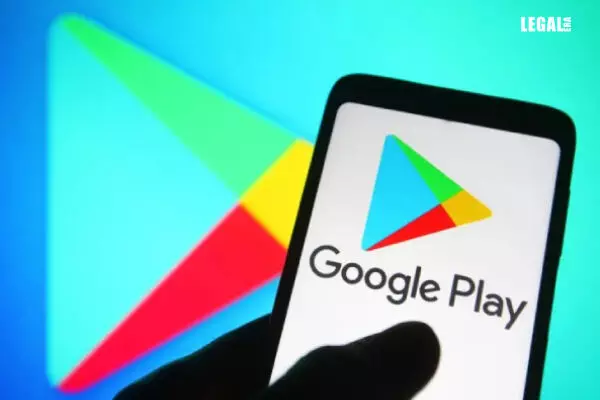- Home
- News
- Articles+
- Aerospace
- Artificial Intelligence
- Agriculture
- Alternate Dispute Resolution
- Arbitration & Mediation
- Banking and Finance
- Bankruptcy
- Book Review
- Bribery & Corruption
- Commercial Litigation
- Competition Law
- Conference Reports
- Consumer Products
- Contract
- Corporate Governance
- Corporate Law
- Covid-19
- Cryptocurrency
- Cybersecurity
- Data Protection
- Defence
- Digital Economy
- E-commerce
- Employment Law
- Energy and Natural Resources
- Entertainment and Sports Law
- Environmental Law
- Environmental, Social, and Governance
- Foreign Direct Investment
- Food and Beverage
- Gaming
- Health Care
- IBC Diaries
- In Focus
- Inclusion & Diversity
- Insurance Law
- Intellectual Property
- International Law
- IP & Tech Era
- Know the Law
- Labour Laws
- Law & Policy and Regulation
- Litigation
- Litigation Funding
- Manufacturing
- Mergers & Acquisitions
- NFTs
- Privacy
- Private Equity
- Project Finance
- Real Estate
- Risk and Compliance
- Student Corner
- Take On Board
- Tax
- Technology Media and Telecom
- Tributes
- Viewpoint
- Zoom In
- Law Firms
- In-House
- Rankings
- E-Magazine
- Legal Era TV
- Events
- Middle East
- Africa
- News
- Articles
- Aerospace
- Artificial Intelligence
- Agriculture
- Alternate Dispute Resolution
- Arbitration & Mediation
- Banking and Finance
- Bankruptcy
- Book Review
- Bribery & Corruption
- Commercial Litigation
- Competition Law
- Conference Reports
- Consumer Products
- Contract
- Corporate Governance
- Corporate Law
- Covid-19
- Cryptocurrency
- Cybersecurity
- Data Protection
- Defence
- Digital Economy
- E-commerce
- Employment Law
- Energy and Natural Resources
- Entertainment and Sports Law
- Environmental Law
- Environmental, Social, and Governance
- Foreign Direct Investment
- Food and Beverage
- Gaming
- Health Care
- IBC Diaries
- In Focus
- Inclusion & Diversity
- Insurance Law
- Intellectual Property
- International Law
- IP & Tech Era
- Know the Law
- Labour Laws
- Law & Policy and Regulation
- Litigation
- Litigation Funding
- Manufacturing
- Mergers & Acquisitions
- NFTs
- Privacy
- Private Equity
- Project Finance
- Real Estate
- Risk and Compliance
- Student Corner
- Take On Board
- Tax
- Technology Media and Telecom
- Tributes
- Viewpoint
- Zoom In
- Law Firms
- In-House
- Rankings
- E-Magazine
- Legal Era TV
- Events
- Middle East
- Africa
For settling a legal fight with app developers, Google to pay $90 million

For settling a legal fight with app developers, Google to pay $90 million
It proposed to put the amount in a fund to support the app developers who made $2 million or less in annual revenue from 2016-2021
According to a court filing, Alphabet Inc's Google has agreed to pay $90 million to settle a legal fight with app developers over the money they earned creating apps for Android smartphones and for enticing users to make in-app purchases.
In a lawsuit filed in the federal court in San Francisco, the app developers had accused Google of using agreements with smartphone makers, technical barriers and revenue sharing agreements. It effectively closed the app ecosystem and shunted most payments through its Google Play Store billing system with a default service fee of 30 percent.
The multinational technology company stated, "A vast majority of the US developers who earned revenue through Google Play will be eligible to receive money from this fund if they choose."
It clarified that the company would also charge developers a 15 percent commission on their first million in revenue from the Play Store each year. It started doing this last year.
Meanwhile, the court must first approve the proposed settlement.
According to the international law firm Hagens Berman Sobol Shapiro, who represented the plaintiffs, about 48,000 app developers are eligible to apply for the $90 million funds and the minimum payout is $250.
In 2021, Apple agreed to loosen the App Store restrictions on small developers, striking a deal in a class action. It also agreed to pay $100 million.
In Washington, Congress is considering legislation that would require Google and Apple to allow sideloading or the practice of downloading apps without using an app store.
But Google has said that it already allows sideloading. It would also bar them from requiring that app providers use Google and Apple's payment systems.



